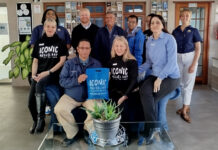There has been considerable concern among South African nationals working abroad relating to the impact of legislated changes to the exemption available to them in respect of remuneration earned by them while working abroad.
Gavin Duffy, partner at PwC South Africa, said that under the current system exemption is uncapped, i.e. all remuneration earned from services rendered abroad is exempt.
However, with effect from years of assessment commencing on 1 March 2020, only the first R1 million of such remuneration will be exempt, he said.
“Currently (as well as under the revised proposal), in order to qualify for the exemption (which applies only to the remuneration itself, and not to other forms of income such as interest or rentals), the individual must be working outside South Africa for more than a total of 183 days in a 12-month period, and more than 60 of those days must be consecutive,” he said.
“Under the new rules, only the first R1 million of foreign earnings will be exempt. Obviously, this will result in many South African resident individuals becoming taxable on remuneration that was previously exempt.”
Duffy added that the changes will also result in additional compliance and documentation requirements.
Under the existing rules, the usual disclosure obligations in relation to exempt remuneration apply, and taxpayers entitled to the exemption are often required to provide proof to the South African Revenue Services (SARS) that they have met the requirements of the exemption.
Tax link
Once the new rules come into effect, affected taxpayers will certainly be required to provide additional documentation to SARS to support claims for tax credits in respect of remuneration that is now taxable both in South Africa and in the relevant foreign country, Duffy said.
“The new rules have, not surprisingly, given rise to concern among South African-resident individuals working abroad. Many are assessing their options regarding their tax residence status, and are seeking to break any tax link they may have with South Africa.
“Thus, for example, there has been a large increase in individuals seeking financial emigration from South Africa (i.e. emigration for purposes of South African exchange control), despite the fact that whether or not one has financially emigrated is not, of itself, determinative of one’s status as a South African tax resident,” he said.
Duffy said that it must be noted that the change only impacts individuals who are, in fact, South African tax residents.
“Many South African nationals working abroad are already – whether they are aware of this or not – non-resident from a tax perspective, based on their particular personal circumstances.”
Take steps now
The net tax impact of the changes for a particular individual is dependent on earnings and foreign taxes paid, and would need to be examined on a case-by-case basis based on the particular circumstances of the individual, Duffy said.
“South African nationals working abroad would be well-advised to obtain professional advice on the determination of their South African tax residence status,” he said.
“This will enable appropriate planning, the quantification of any impact that the new rules may have on tax liability, as well as a review of previous disclosures made to SARS so that the implications of any incorrect disclosures may be addressed.”
Duffy said that proactive steps in this regard can also assist individuals in avoiding unnecessary – and often costly – steps they might be contemplating in order to break their South African tax residence when they might, in fact, already have ceased to be South African tax resident.















